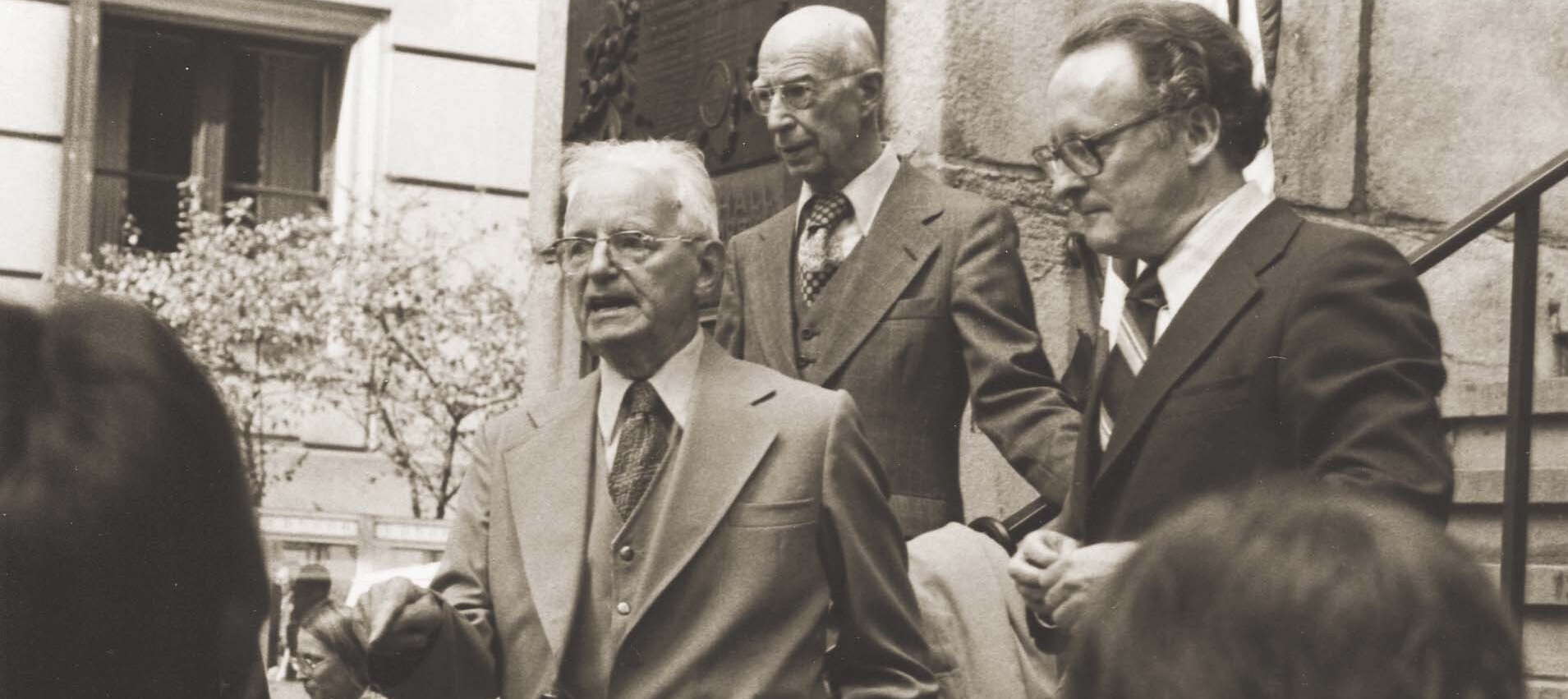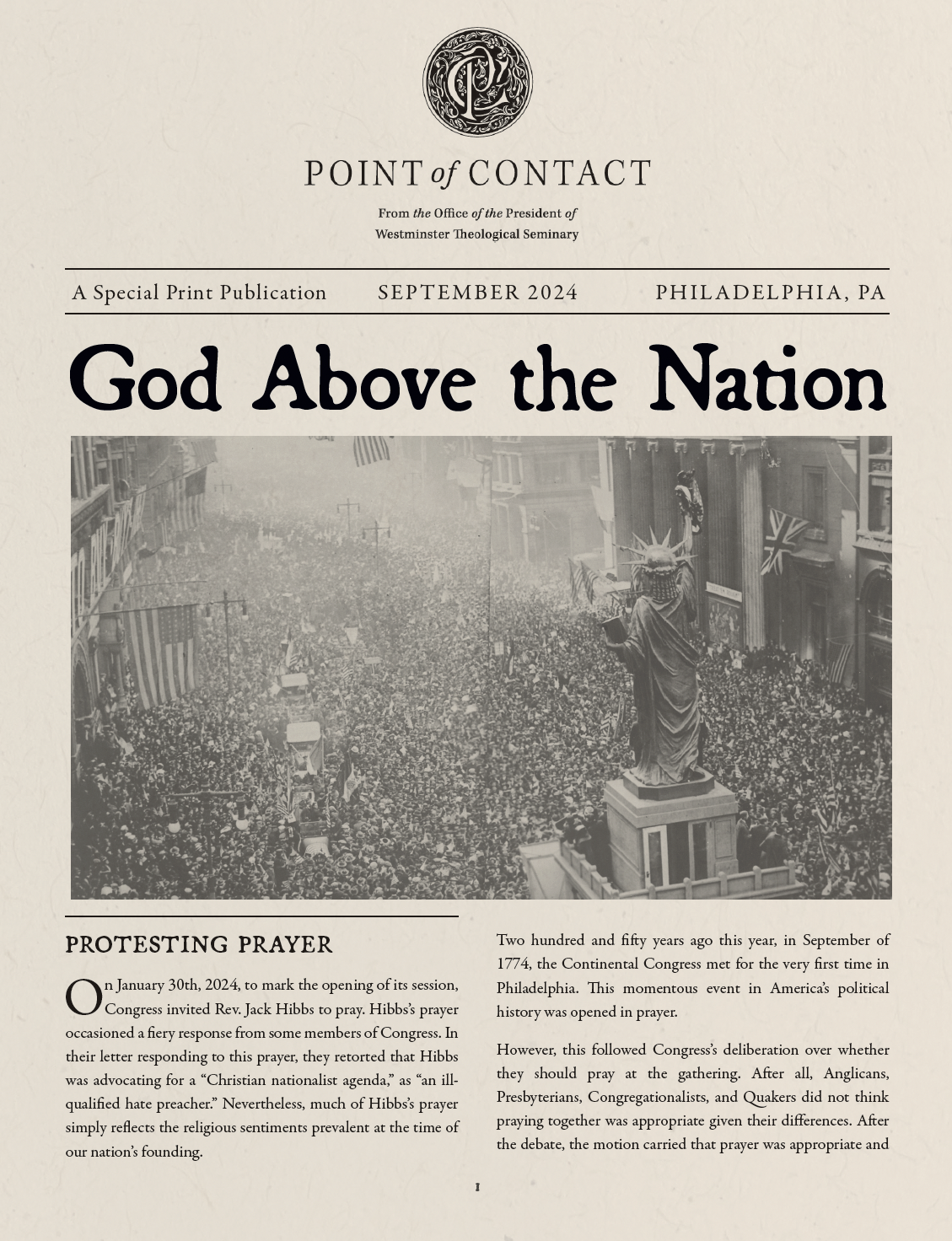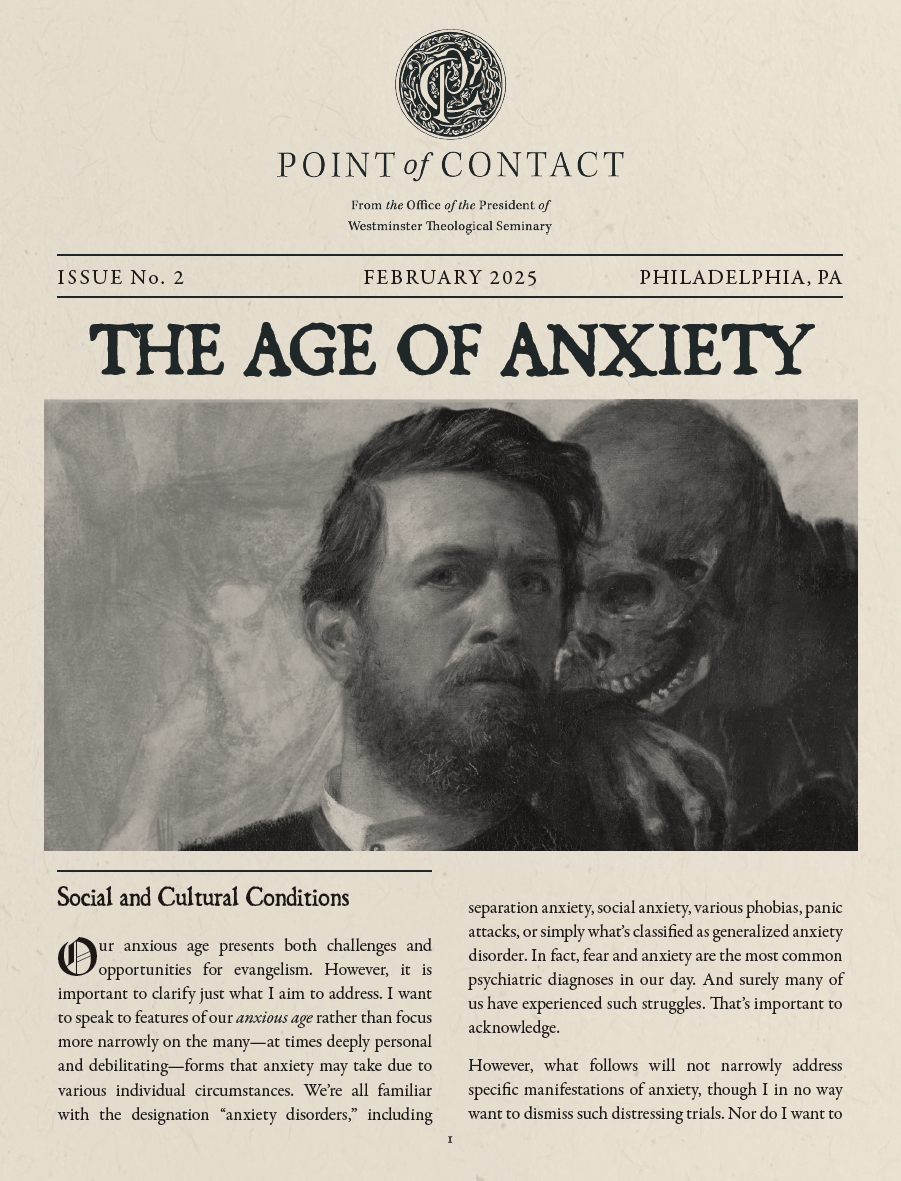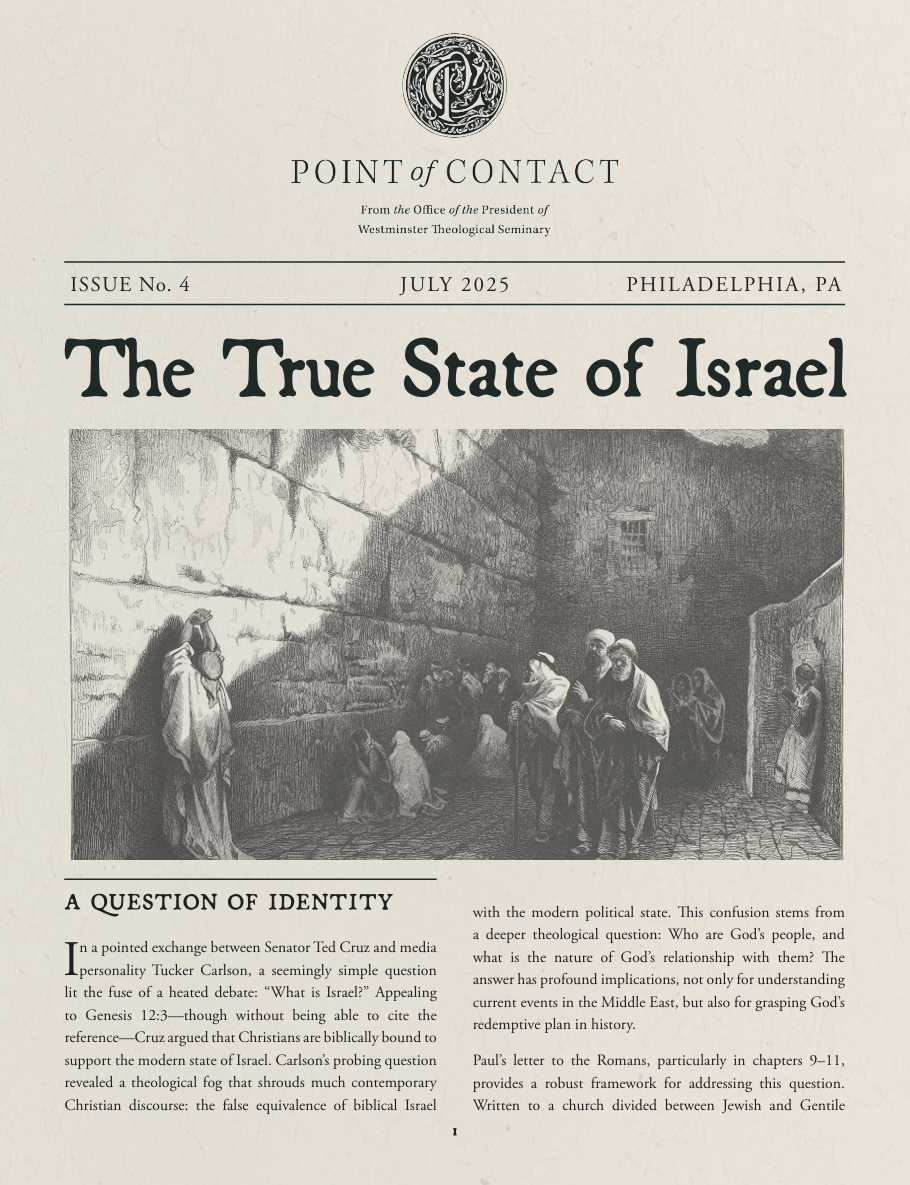
Point of Contact





We are living in the midst of a mighty conflict against the Christian religion. The conflict is carried on with intellectual weapons. –J. Gresham Machen
Point of Contact is an high-quality print publication that provides Christian engagement with the most pressing moral, civic, and cultural issues facing the church in today’s world.
Thanks to our generous donors, you can subscribe to Point of Contact for free. Should you have any questions, please write to communications@wts.edu
%201.png)